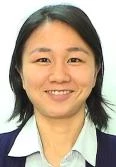 Ocean view of Moroni, capital city of Comoros. Photo: Tsiky Lalatiana Ranaivoarisoa / World Bank
Ocean view of Moroni, capital city of Comoros. Photo: Tsiky Lalatiana Ranaivoarisoa / World Bank
As we celebrate World Ocean Day this June 8th, let us draw inspiration from the Comoros, where community-led fisheries management is a strategy and a way of life that honors the ocean's generosity while safeguarding its future.
As the waves of the Indian Ocean caress the shores of the Comoros, the archipelago nation celebrates the bounty of its seas, particularly during the joyful season of February when the octopus fishing communities welcome the opening of the season after months of closure. This period marks a time of festivity and also reflection on the sustainable practices that have been integrated into their way of life, a topic that resonates deeply as we approach World Ocean Day.
The Comoros has a vast exclusive economic zone that is 85 times larger than its land area, a very significant potential of marine resources in promoting sustainable and inclusive development. However, this potential has not been fully realized and is often addressed in a fragmented way. As an island nation, effectively managing fisheries and coastal areas is crucial for environmental conservation and for ensuring food security and economic stability.
Our team’s research and development of the Country Environmental Analysis of Comoros revealed the rich but degraded coastal and marine ecosystems, with fishing practices facing growing pressure. In response, our report recommended the nation actively promote sustainable fisheries and integrated management of marine and coastal areas. Embracing this advice, Comoros is now working to strengthen coastal zone management and expand protected areas. It has also developed a high-level strategy aimed at empowering local communities to lead this effort.
Community-led management is more than just a concept; it's a transformative approach that instills a sense of responsibility and leadership in the management of local resources. Its goal is to ensure that the benefits of protected areas are experienced locally by current and future generations, improving living conditions and fostering a connection between the environment, education, and collective action.
The Comoros has put this approach into action with co-managed and community-led fisheries. The World Bank-supported Coastal Resources Co-management for Sustainable Livelihood Project was instrumental in developing co-management agreements across Grande Comores, Mohéli, and Anjouan, specifically focused on developing human and institutional capacity and executing fisheries management plans.
The journey towards sustainable fisheries management is not easy, as some community members struggle with seasonal closures and prioritize immediate financial gains. However, the long-term benefits are becoming more apparent. The combined efforts and collaborative approach are resulting in larger and more plentiful catches, proving the effectiveness of community-led initiatives.
Mrs. Mariama Mahamoud, president of the Sadampoini Women's Fishing Cooperative in Anjouan, shares her experience: "All the fish we eat comes from Chiroroni, our co-management site. The site has become very productive since we implemented sustainable management measures, including closed seasons. We are now organizing a fisherwomen's cooperative to process and add value to our products."
Building on the foundation of previous projects, the Southwest Indian Ocean Fisheries Project (SWIOFish1) set clear performance targets for Comoros, holding regular co-management meetings and ensuring the registration and authorization of fishing operations in compliance with the law.
The journey continues with the Food Systems Resilience Programme for Eastern and Southern Africa Phase 3 (FSRP3), which includes Comoros and is supported by the Global Blue Economy Program – PROBLUE. FSRP3 aims to enhance the resilience of food systems and preparedness for times of food insecurity. It focuses on fisheries-related activities as a critical evaluation of past co-management efforts and as a guide for future expansion.
Through these projects, we are reminded that when we work together, we can achieve a balance between our needs and the health of the marine ecosystems that sustain us.




Join the Conversation